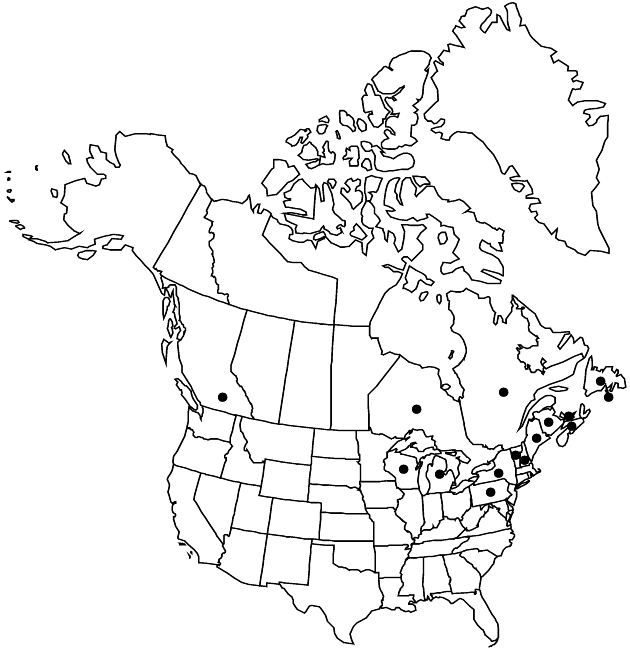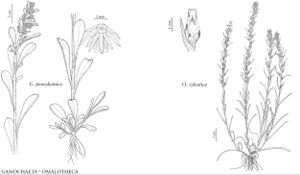Omalotheca sylvatica
in F. W. Schultz, Arch. Fl., 311. 1861.
Plants 10–70 cm. Leaves basal and cauline; blades 1-nerved, linear to narrowly oblanceolate or lanceolate, 2–8 cm × 2–10 mm, distal cauline smaller, linear, faces bicolor, abaxial gray, silvery sericeous, adaxial green, glabrescent. Heads (20–90) in loose, spiciform (leafy-bracteate, interrupted) arrays (4–35 cm, occupying 1/3–5/6 plant heights, simple or branched at bases, primary-axes mostly visible). Involucres campanulo-turbinate, 5–6.5 mm. Phyllaries some or all with conspicuous dark-brown spot distal to middle. Cypselae cylindric to fusiform, minutely strigose; pappus bristles basally connate, falling together. 2n = 56.
Phenology: Flowering Jul–Sep(–Oct).
Habitat: Open woods, boggy woods, rocky slopes, clearings, fields, borders of woods, roadsides, muddy banks, disturbed sites
Elevation: 10–500 m
Distribution

St. Pierre and Miquelon, B.C., N.B., Nfld. and Labr. (Nfld.), N.S., Ont., P.E.I., Que., Maine, Mich., N.H., N.Y., Pa., Vt., Wis., Europe, Asia (Caucasus), Asia (Iran), Asia (Siberia)
Discussion
The circumboreal Omalotheca sylvatica may have been introduced from Eurasia (Frére Marie-Victorin 1995). Omalotheca alpigena (K. Koch) Holub and O. caucasica (Sommier & Levier) S. K. Cherepanov were treated as synonyms of O. sylvatica by A. J. C. Grierson (1975); they have been recognized as distinct species in other treatments.
Selected References
None.
